第119章 THE FOURTH(4)
No one so far has dared to take up this problem as a present question for statecraft, but it comes unheralded, unadvocated, and sits at every legislative board.Every improvement is provisional except the improvement of the race, and it became more and more doubtful to me if we were improving the race at all! Splendid and beautiful and courageous people must come together and have children, women with their fine senses and glorious devotion must be freed from the net that compels them to be celibate, compels them to be childless and useless, or to bear children ignobly to men whom need and ignorance and the treacherous pressure of circumstances have forced upon them.We all know that, and so few dare even to whisper it for fear that they should seem, in seeking to save the family, to threaten its existence.It is as if a party of pigmies in a not too capacious room had been joined by a carnivorous giant--and decided to go on living happily by cutting him dead....
The problem the developing civilised state has to solve is how it can get the best possible increase under the best possible conditions.I became more and more convinced that the independent family unit of to-day, in which the man is master of the wife and owner of the children, in which all are dependent upon him, subordinated to his enterprises and liable to follow his fortunes up or down, does not supply anything like the best conceivable conditions.We want to modernise the family footing altogether.An enormous premium both in pleasure and competitive efficiency is put upon voluntary childlessness, and enormous inducements are held out to women to subordinate instinctive and selective preferences to social and material considerations.
The practical reaction of modern conditions upon the old tradition of the family is this: that beneath the pretence that nothing is changing, secretly and with all the unwholesomeness of secrecy everything is changed.Offspring fall away, the birth rate falls and falls most among just the most efficient and active and best adapted classes in the community.The species is recruited from among its failures and from among less civilised aliens.
Contemporary civilisations are in effect burning the best of their possible babies in the furnaces that run the machinery.In the United States the native Anglo-American strain has scarcely increased at all since 1830, and in most Western European countries the same is probably true of the ablest and most energetic elements in the community.The women of these classes still remain legally and practically dependent and protected, with the only natural excuse for their dependence gone....
The modern world becomes an immense spectacle of unsatisfactory groupings; here childless couples bored to death in the hopeless effort to sustain an incessant honeymoon, here homes in which a solitary child grows unsocially, here small two or three-child homes that do no more than continue the culture of the parents at a great social cost, here numbers of unhappy educated but childless married women, here careless, decivilised fecund homes, here orphanages and asylums for the heedlessly begotten.It is just the disorderly proliferation of Bromstead over again, in lives instead of in houses.
What is the good, what is the common sense, of rectifying boundaries, pushing research and discovery, building cities, improving all the facilities of life, making great fleets, waging wars, while this aimless decadence remains the quality of the biological outlook?...
It is difficult now to trace how I changed from my early aversion until I faced this mass of problems.But so far back as 1910 I had it clear in my mind that I would rather fail utterly than participate in all the surrenders of mind and body that are implied in Dayton's snarl of "Leave it alone; leave it all alone!" Marriage and the begetting and care of children, is the very ground substance in the life of the community.In a world in which everything changes, in which fresh methods, fresh adjustments and fresh ideas perpetually renew the circumstances of life, it is preposterous that we should not even examine into these matters, should rest content to be ruled by the uncriticised traditions of a barbaric age.
Now, it seems to me that the solution of this problem is also the solution of the woman's individual problem.The two go together, are right and left of one question.The only conceivable way out from our IMPASSE lies in the recognition of parentage, that is to say of adequate mothering, as no longer a chance product of individual passions but a service rendered to the State.Women must become less and less subordinated to individual men, since this works out in a more or less complete limitation, waste, and sterilisation of their essentially social function; they must become more and more subordinated as individually independent citizens to the collective purpose.Or, to express the thing by a familiar phrase, the highly organised, scientific state we desire must, if it is to exist at all, base itself not upon the irresponsible man-ruled family, but upon the matriarchal family, the citizen-ship and freedom of women and the public endowment of motherhood.
After two generations of confused and experimental revolt it grows clear to modern women that a conscious, deliberate motherhood and mothering is their special function in the State, and that a personal subordination to an individual man with an unlimited power of control over this intimate and supreme duty is a degradation.No contemporary woman of education put to the test is willing to recognise any claim a man can make upon her but the claim of her freely-given devotion to him.She wants the reality of her choice and she means "family" while a man too often means only possession.
This alters the spirit of the family relationships fundamentally.